We made it!
At 3:46 pm we arrived at the Wagenhallen in Stuttgart. At 5 o’clock the Award Ceremony for the 17 participating teams took place and we can say: the effort was worth it. During the rally we made 1741 km. Here you can see the whole route. There was a Classic and a Creative Challenge. Our focus was on the Creative Challenge with respect to hydrogen from biogas. The results:
#1 in the Creative Challenge
#4 in the overall ranking
We are especially proud of the first place in the Creative Challenge and would like to thank Max Schleupen and his family! Another big thank you goes to the whole organizing team of the #24h2Challenge and to J.A. and J.G. Wünning for their support.
It was an excellent experience for Team BtX!
We are excited to see where the journey goes next…
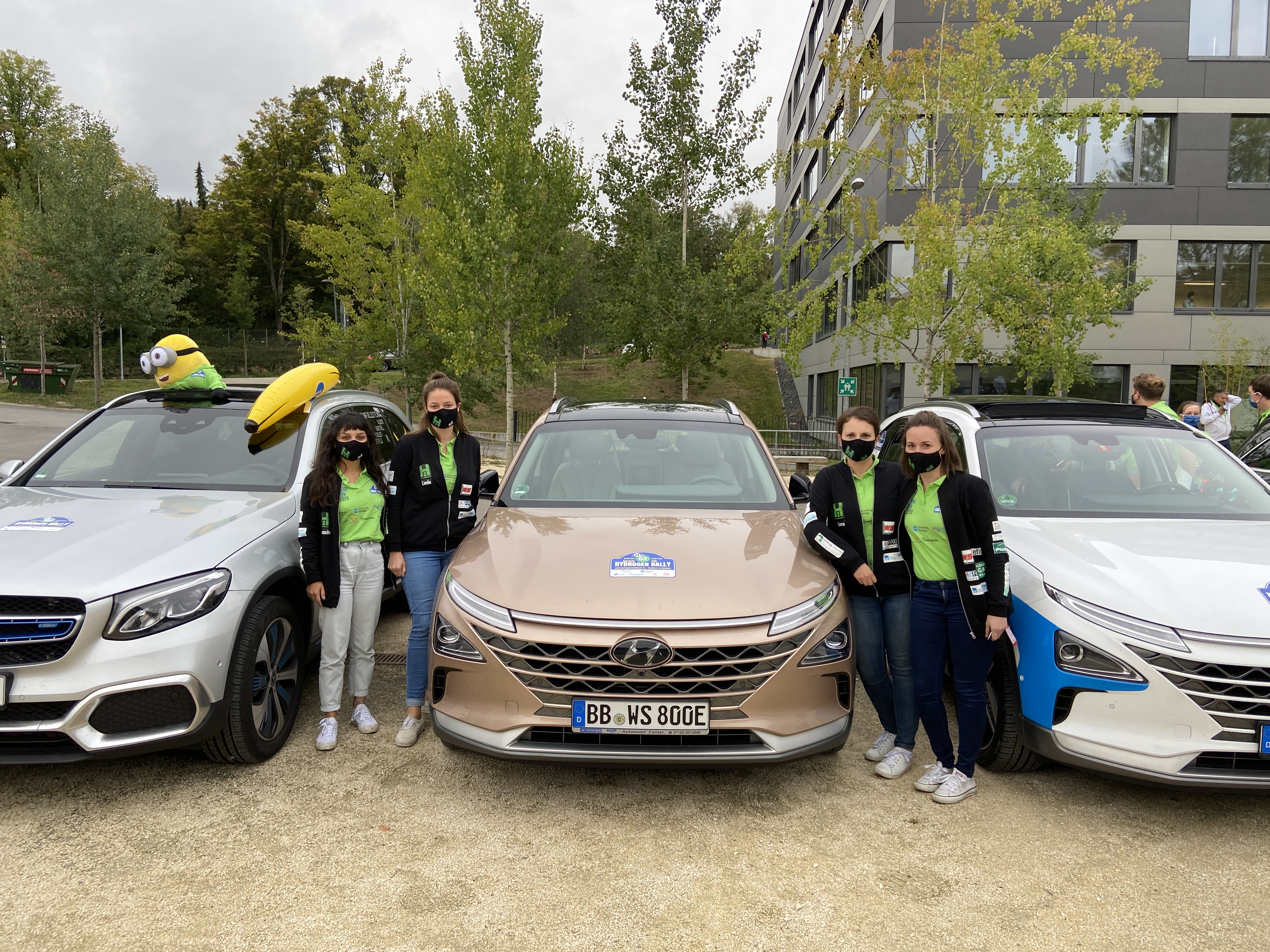
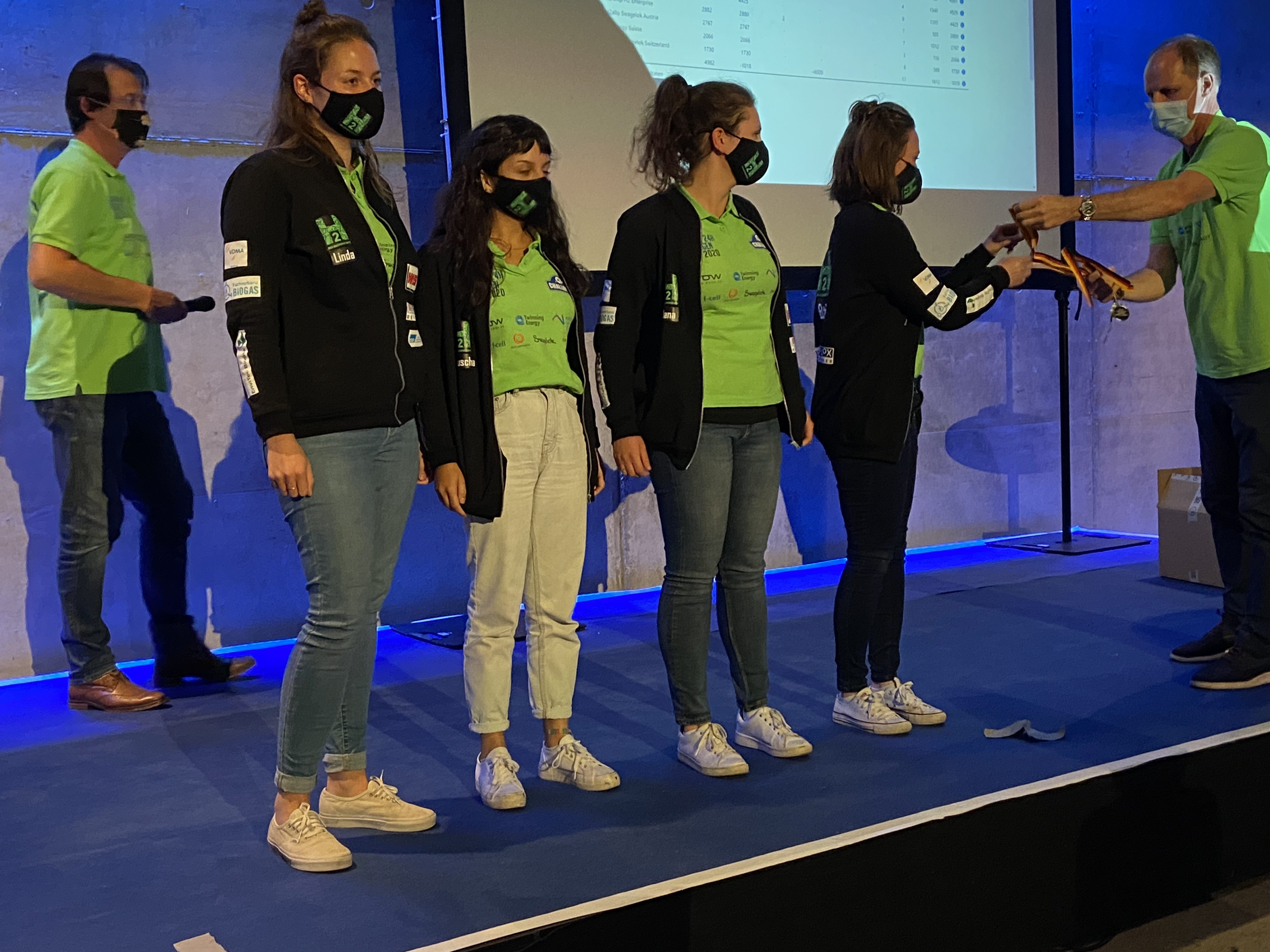
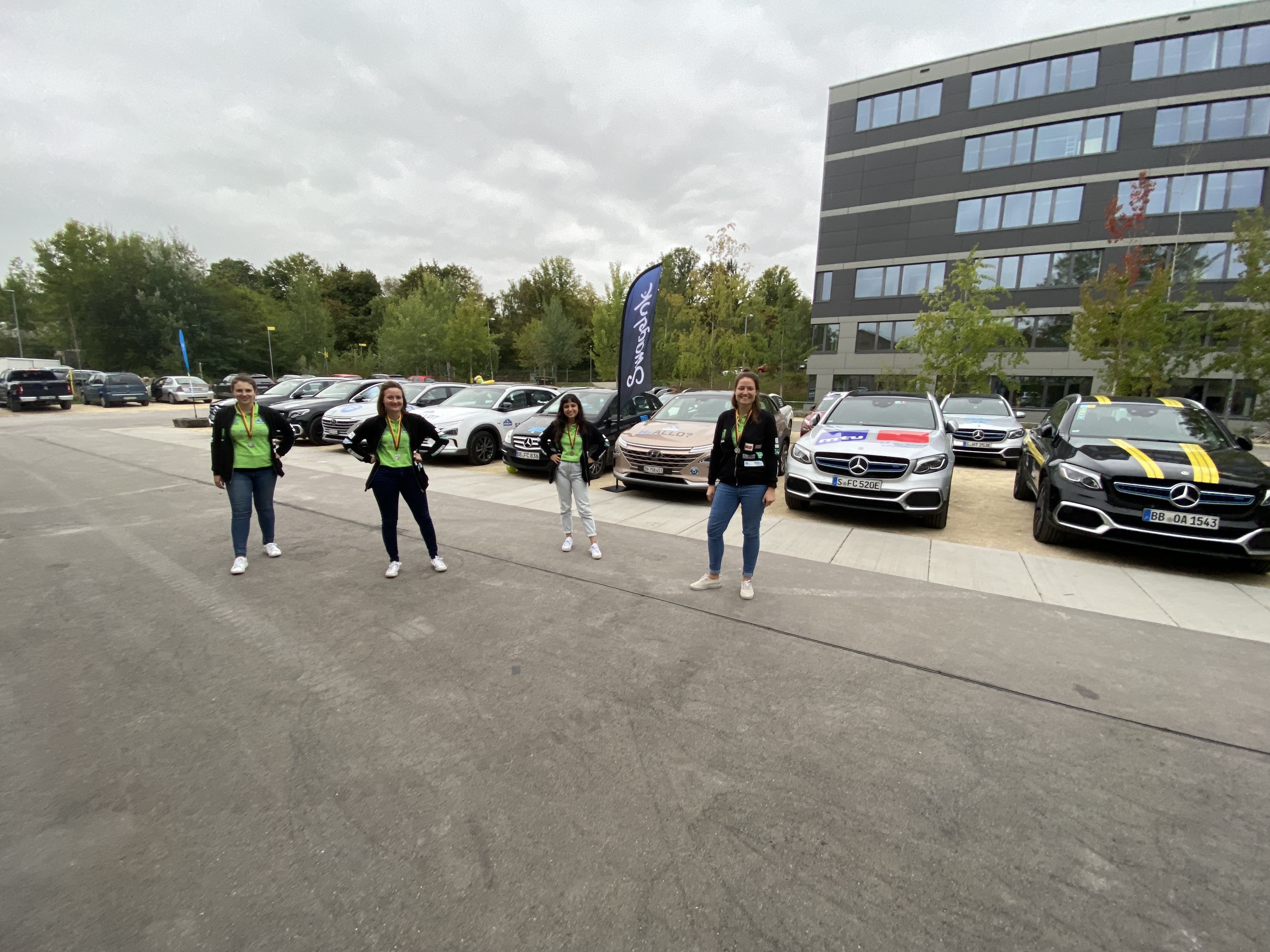
Final Stop: WS Wärmeprozesstechnik GmbH
Two of our BtX team members, Julia and Jana, work for WS Group. On our way to the finish destination in Stuttgart we visit the company.
WS Wärmeprozesstechnik, is an owner operated enterprise located in Renningen, near Stuttgart. Founded in 1982, its success is based on innovative heating systems for high temperature processes. WS is the inventor and owner of the patents of the FLOX®-combustion principle for highly efficient and low emission burner systems for industrial furnaces. FLOX®- burners with integrated recuperation are most suitable for operation in radiation tubes. Ongoing research and development ensure global leadership of WS. A current focus is to develop and promote “Bio to X” technologies.
The managing directors of the company are strongly committed to electric mobility. Dr. J.G. Wünning has been driving electric cars for years. He is convinced that there should be more low cost and particularly durable electric vehicles for short distance travel. These cars are perfectly adequate for everyday needs and urban traffic. His actual car is a e.Go life. His father and company founder, Dr. J.A. Wünning, has fulfilled his dream and is driving a hydrogen fuel cell car, Hyundai Nexo, since last year. We are lucky to get this car as our 5th team member for this rally 🙂
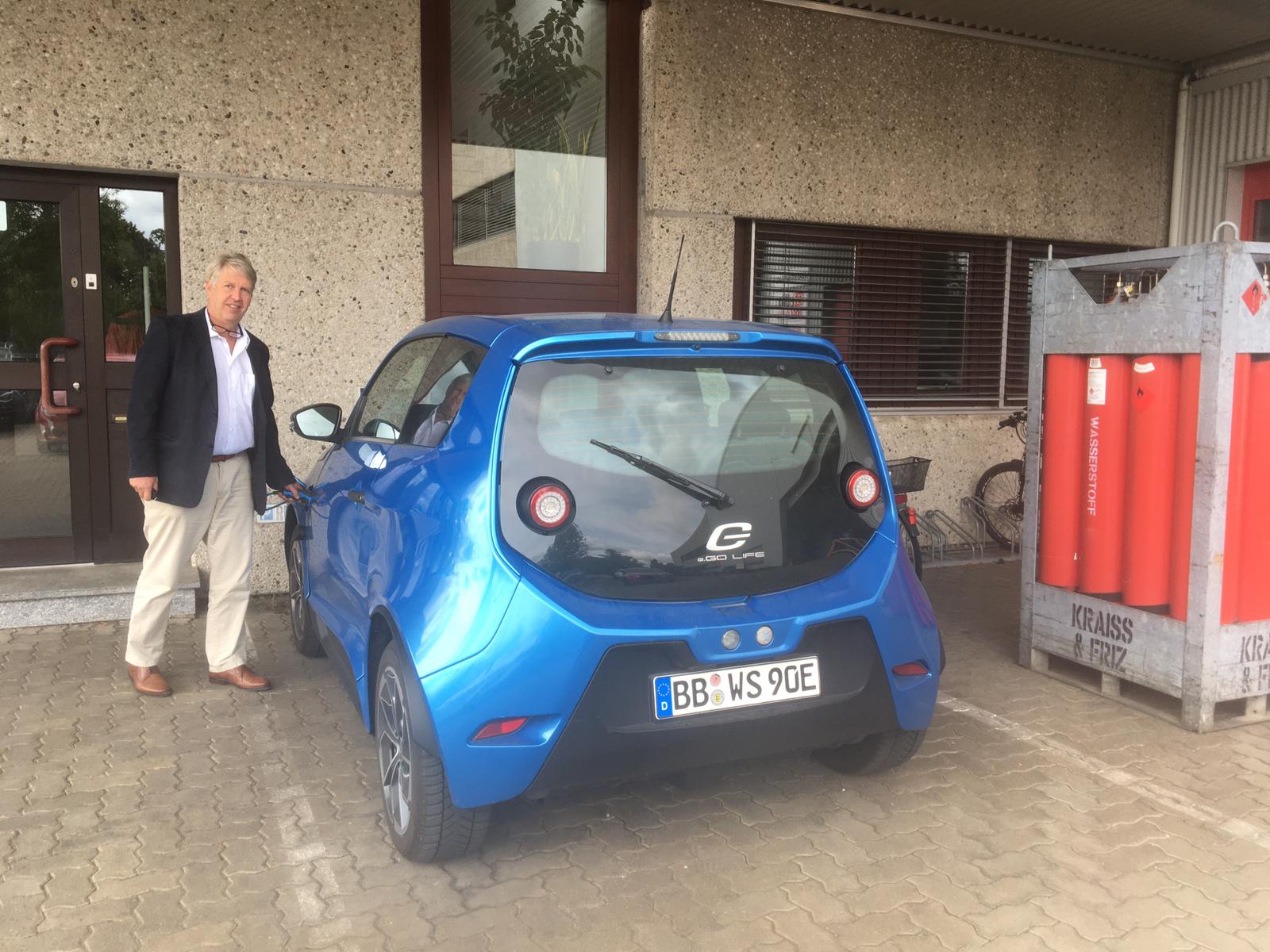
Dr. J.G. Wünning at his electric car e.GO life
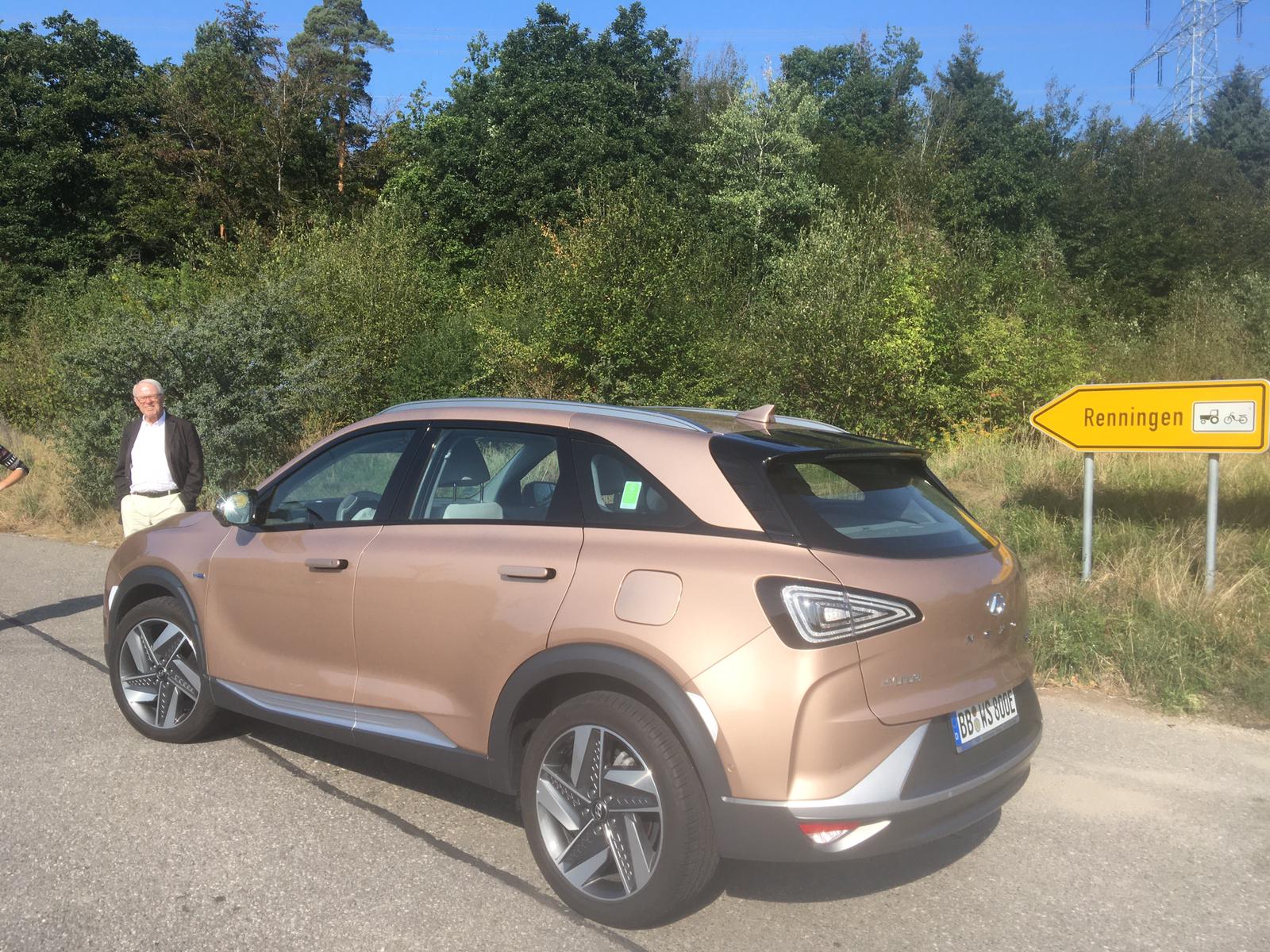
Dr. J.A. Wünning and his hydrogen fuel cell car, Hyundai Nexo
The WS company is known for its interdisciplinary way of thinking. Over the years, this attitude has led to the establishment of several subsidiaries. Three subsidiaries of WS are located at the same premises in Renningen.
Since 2000 the business WS Reformer has been based on successfully downscaling large scale steam reforming making the technology decentralized applicable. The product portfolio of reformers is dedicated to PEM-fuel cells, and SOFC-systems as well as to solutions for on site hydrogen.
e-flox GmbH is a manufacturer of facilities and FLOX®-burners in the field of thermal process energy. The company provides solutions for all kind of gases which are difficult to treat in conventional burner systems. A core business are low caloric value (LCV) gases resulting from biogas upgrading plants, landfill sites, and industrial and chemical processes or pyrolysis. The key points are FLOX® technology, turnkey plants, and highly efficient waste heat utilization.
Currently e-flox is building a plant to produce green hydrogen from biogas. The turnkey plant will be completed in February 2021. The steam reformer from WS Reformer can already be viewed at the factory.
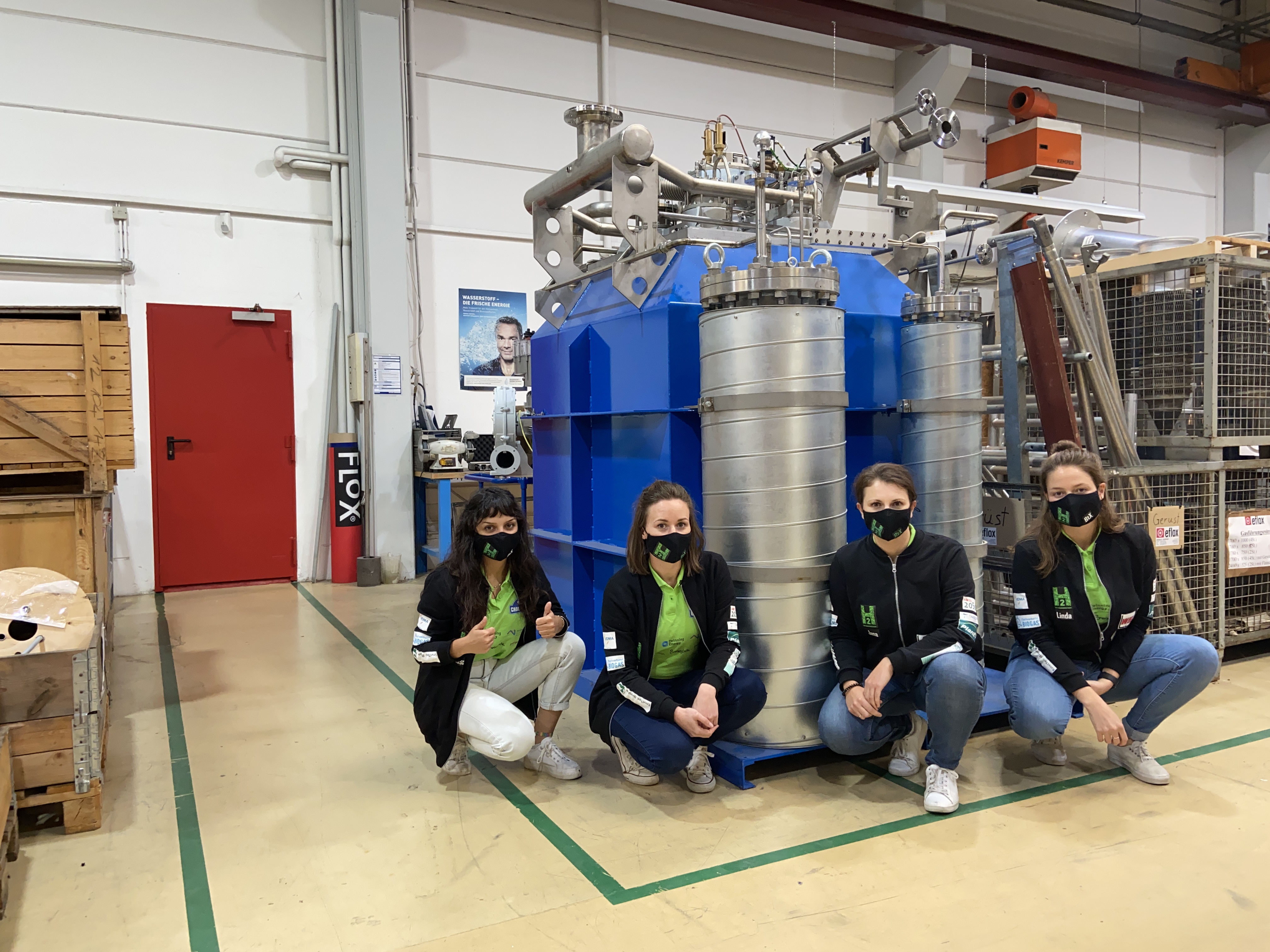
The customers for green hydrogen shall be the vehicle fleets of the municipalities within the close future. The proven technology could be a part of the German “National Hydrogen Strategy” as a forerunner for green hydrogen produced on a large scale.
Visit at KIT Engler-Bunte-Institute Combustion Technology (EBI-vbt)- Project: BioRoburplus
On the way from Cologne to Stuttgart we made a detour to one of the oldest technical universities in Germany, the KIT (Karlsruhe Institute of Technology). More precisely, we visited the Engler-Bunte-Institut Chair of Combustion Technology (EBI-vbt) at the Faculty of Chemical and Process Engineering. Here, numerical (CFD) as well as experimental investigations (optical and invasive measurement techniques) are conducted to gain detailed knowledge of combustion processes. One area of interest is the (future) usage of hydrogenous, biogenic and synthetic fuels.
At the institute we had the opportunity to meet two of the research associates, Christoph Wieland and Christof Weis, who introduced the BioRoburplus-project.
A network of 11 partners from 7 European countries, including industrial companies, medium-sized enterprises, universities and research institutes are working on this project that is aiming for decentralized production of hydrogen from biogas by oxidative steam reforming. Highlights of the BioRoburplus project are the processing of raw biogas in varying qualities and high energy efficiency, both contributing to marketing production costs. A pilot plant in relevant scale and for real operating conditions has been designed and is currently under construction.
The contribution of KIT-EBI vbt is an efficient residual gas combustion system with heat recovery supporting the process energy efficiency. Special feature of this newly developed system is the capability of combusting biogas and/or residual gas that contains hydrogen in the same burner with high tolerance to fluctuating composition of the gas mixture.
Unfortunately, we could not see the pilot plant itself, because it is being set up in Turin, Italy. Demo operation will take place in the first half of 2021.
We thank the staff of KIT EBI vbt for the good introduction to this exciting topic during our short visit.
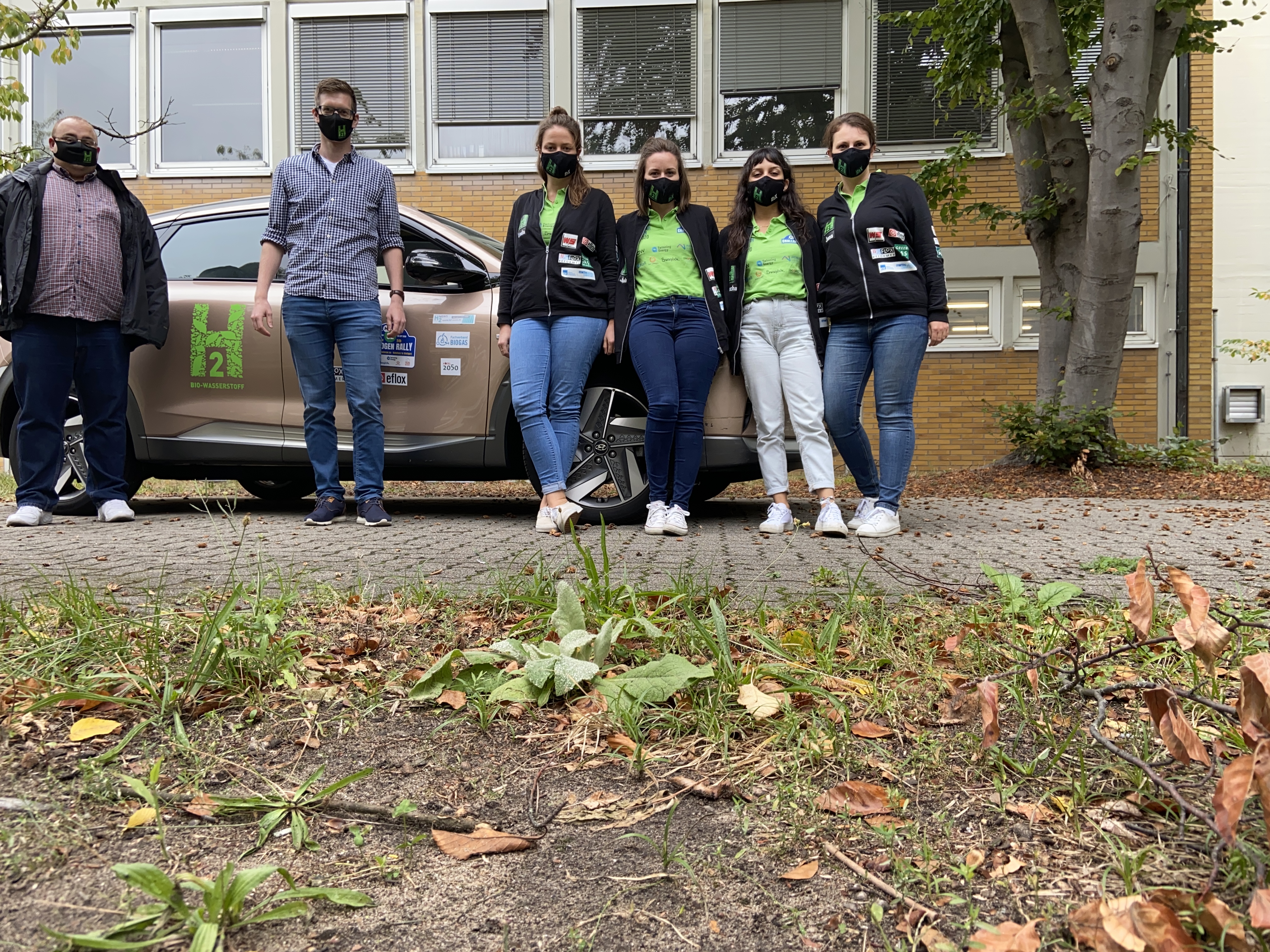
Vacation on a farm – differently
It’s 7:40 am, the sun is rising and we reach the Lefkeshof, a dairy farm which is running in its 5th generation of the Schleupen family. We have a special connection to Lefkeshof, because the youngest son of the Schleupen family, Max, works at the IOB. The farm is managed by Werner and Hanne Schleupen and their son Bernd Schleupen. The farm accommodates about 300 milk cows (and two chickens, one dog, two cats and several calves), which obviously produce a lot of dung. 19 years ago, the Schleupen’s decided to build a biogas plant to produce biogas through the fermentation of biomass, which is used to produce green electricity in a combined heat and power plant. By this process they can reduce the carbon footprint linked to the milk production. The fermentation residues can still be used to fertilize the fields – a win-win situation. 2014 the biogas industry contributed above 18 % to the renewable electricity production in Germany. The plants are subsidized for 20 years from the time of commissioning – but what happens after that?
In total, there are about 9500 biogas plants in Germany, whose initial subsidy might run out in the future. Without an economic alternative, the operation of the plants is not worthwhile for most farmers and the plants will be shut down. A new idea is needed and it could be BtX (Bio to X)!
As we are at a hydrogen rally, we concentrate on biomass to hydrogen. How does that work? Biogas can be converted to hydrogen via “steam reforming”. Steam reforming is not an unknown process, in fact it is a process that has been established for decades, but usually based on natural gas. The biogas allows a renewable gas to be used instead of the fossil energy carrier, thus producing “green” hydrogen.
And what do we achieve if we produce hydrogen with all our biogas plants in Germany?
Hydrogen could be produced decentrally at thousands of locations, not only when the sun shines and the wind blows. So when we think about our rally and hydrogen mobility, we could fill up our hydrogen tanks at all these locations.
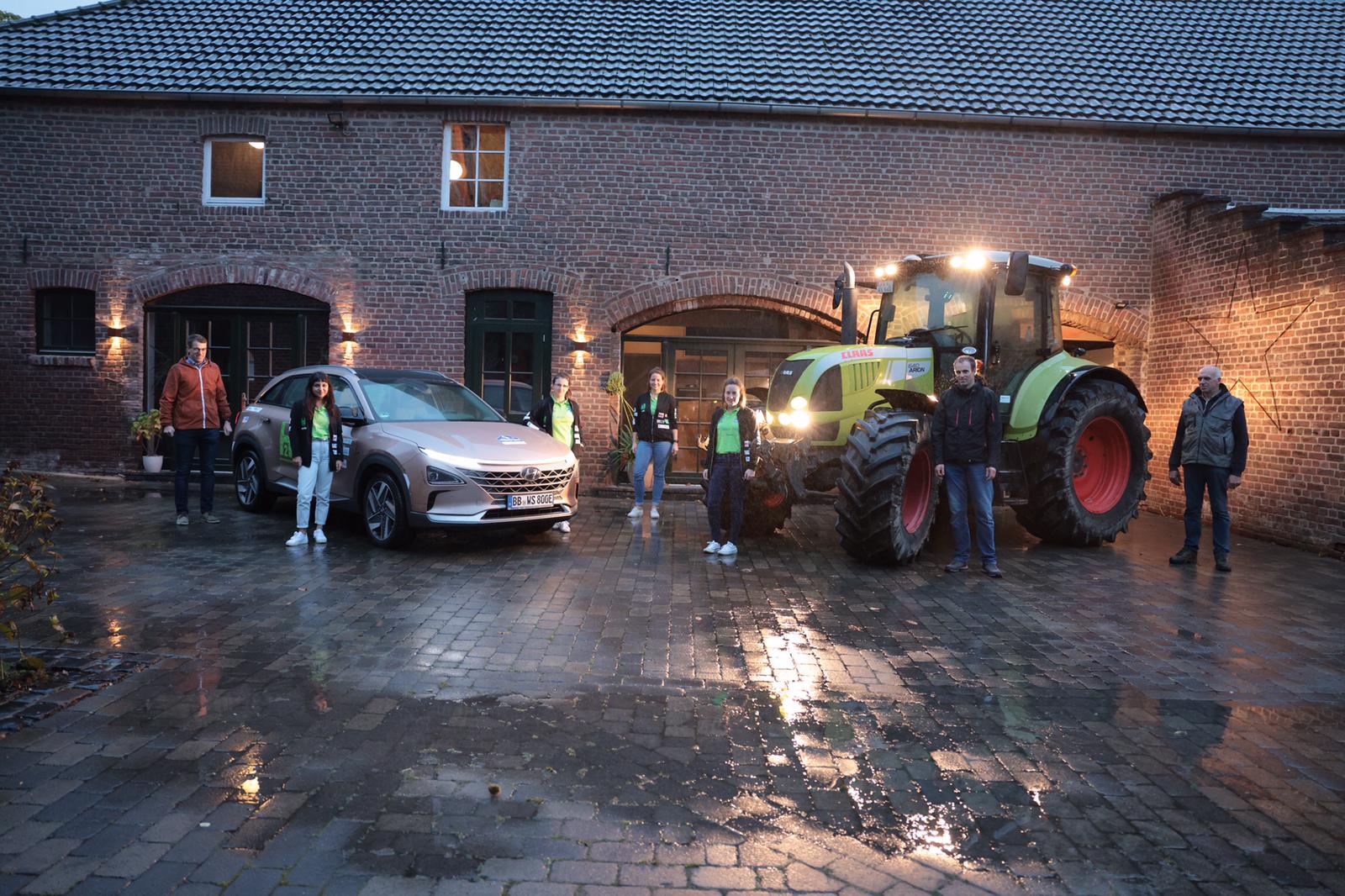
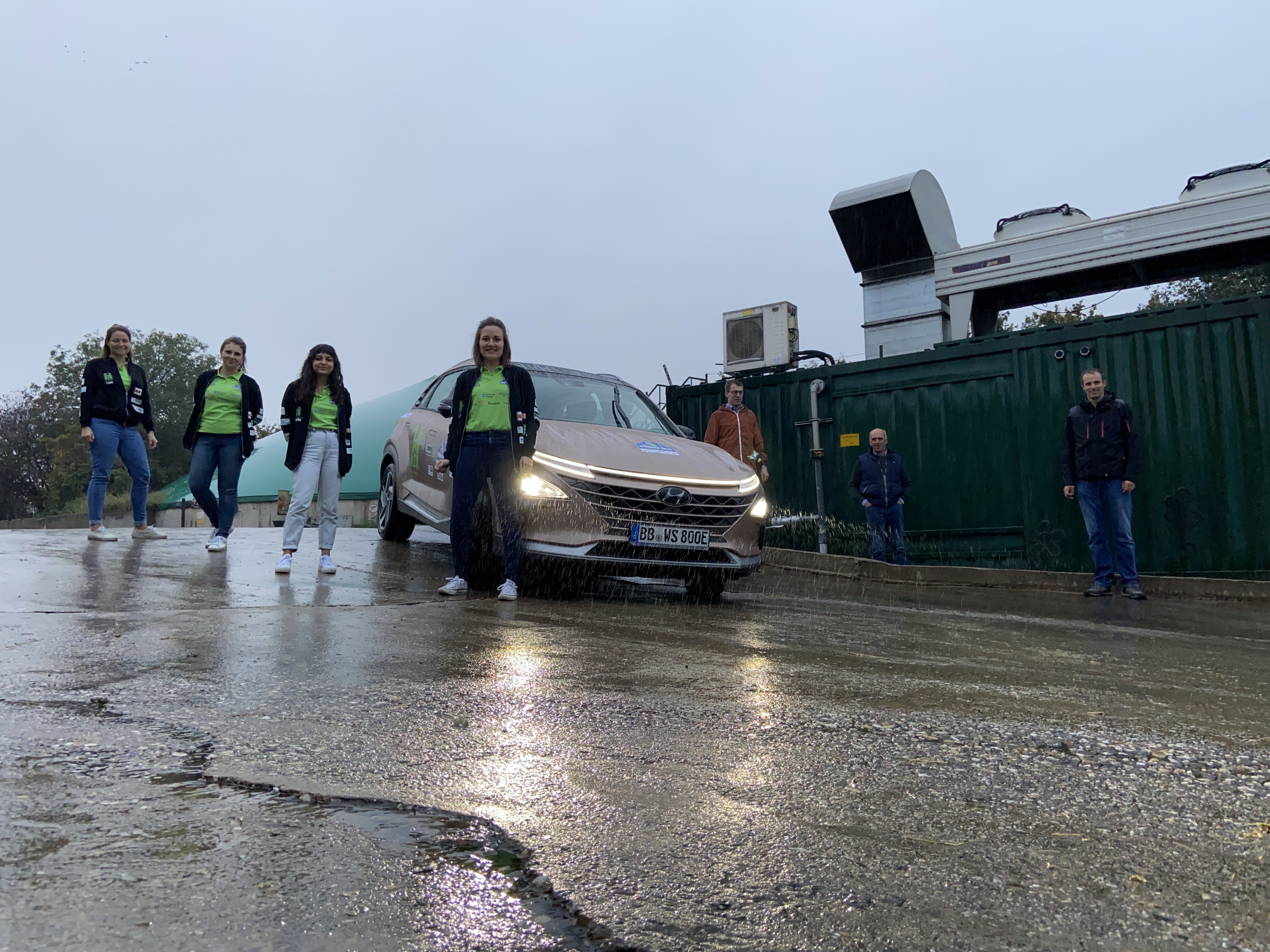
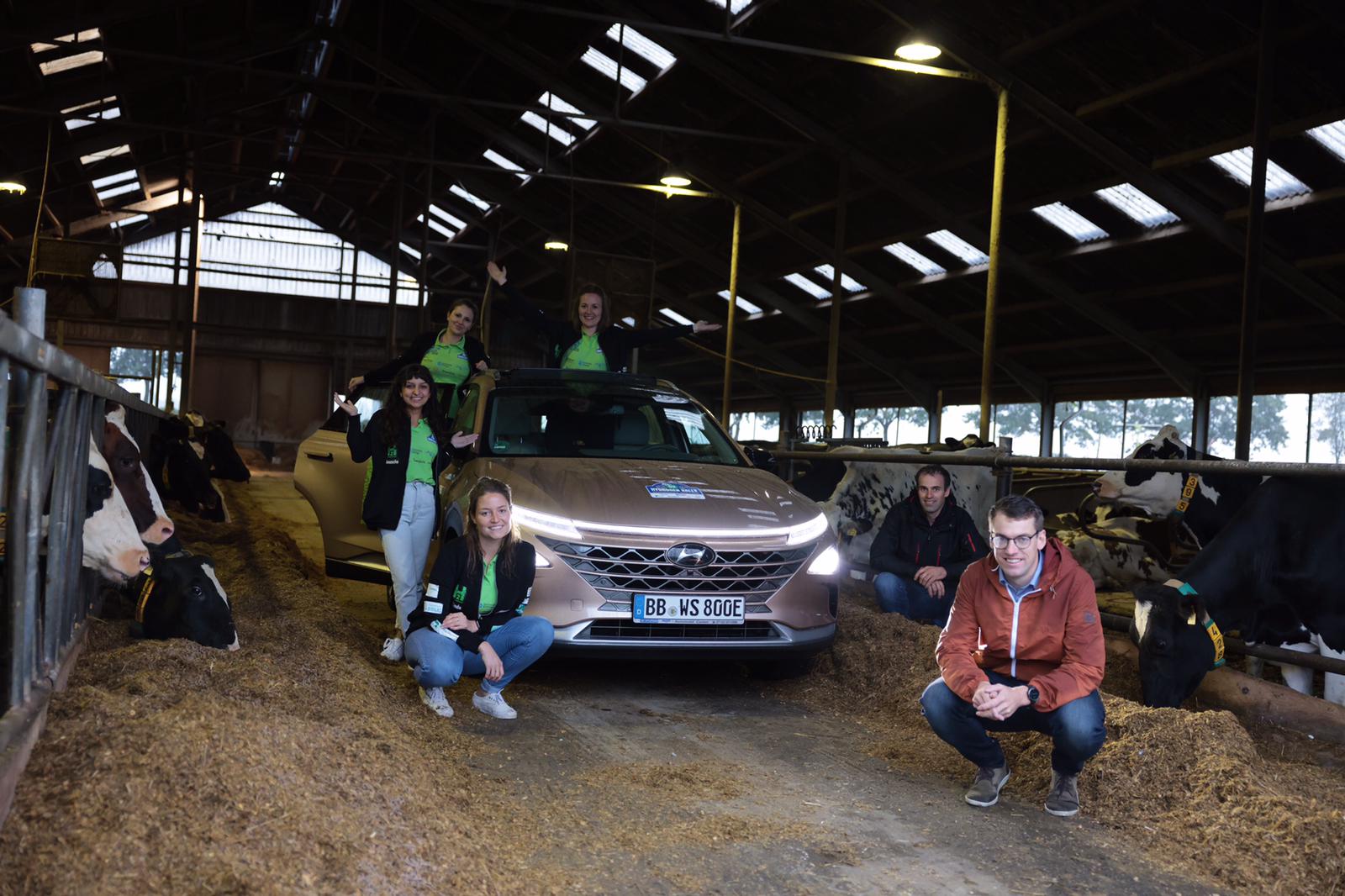
Visit at the Department for Industrial Furnaces and Heat Engineering, RWTH Aachen University
The Department for Industrial Furnaces and Heat Engineering at the RWTH Aachen University (IOB) is a research institute with focus on process and plant optimisation, high-temperature processes, flow simulations, gas analytics and many other topics for years. We are working in cooperation with many industrial companies within the scope of projects. Such cooperation can only work well if you have a great team by your side. The institute consists of Prof. Pfeifer as the head of the department, our research staff, our mechanical and electrical workshop, the IT department and the secretariat.
But what do we have to do with hydrogen?
As a research institute, we always work in a future-oriented way. That means that we naturally look at how we can apply our expertise to the energy transition and renewable energies. With that in mind, you immediately think about hydrogen in the transport sector.
For this reason, we have applied for a project to produce hydrogen from biogas together with Dr. Wünning of WS Wärmeprozesstechnik GmbH and a farm with biogas plant. The farm belongs to the family of one of our colleagues at the IOB, Max Schleupen, and we will visit them tomorrow morning. For this purpose, we want to investigate the production of “green” hydrogen from biogas in a pilot plant. The aim of the project is to develop a market-ready process for hydrogen production from biogas. The process can then be used at many locations where hydrogen can be produced from biogas. The hydrogen would be available on site to refuel cars, trucks and other vehicles. This would provide a sustainable alternative to steam reforming from natural gas.
The production process is even cheaper than producing hydrogen from electrolysis, which requires electricity. In this case, the electricity is of course only sustainable if it is generated by wind or solar power, for example. Biogas is also easier to store than electricity. For many operators of biogas plants, the production of hydrogen from biogas will therefore offer an economic alternative to the previous production of electricity and the production of methane from biogas.
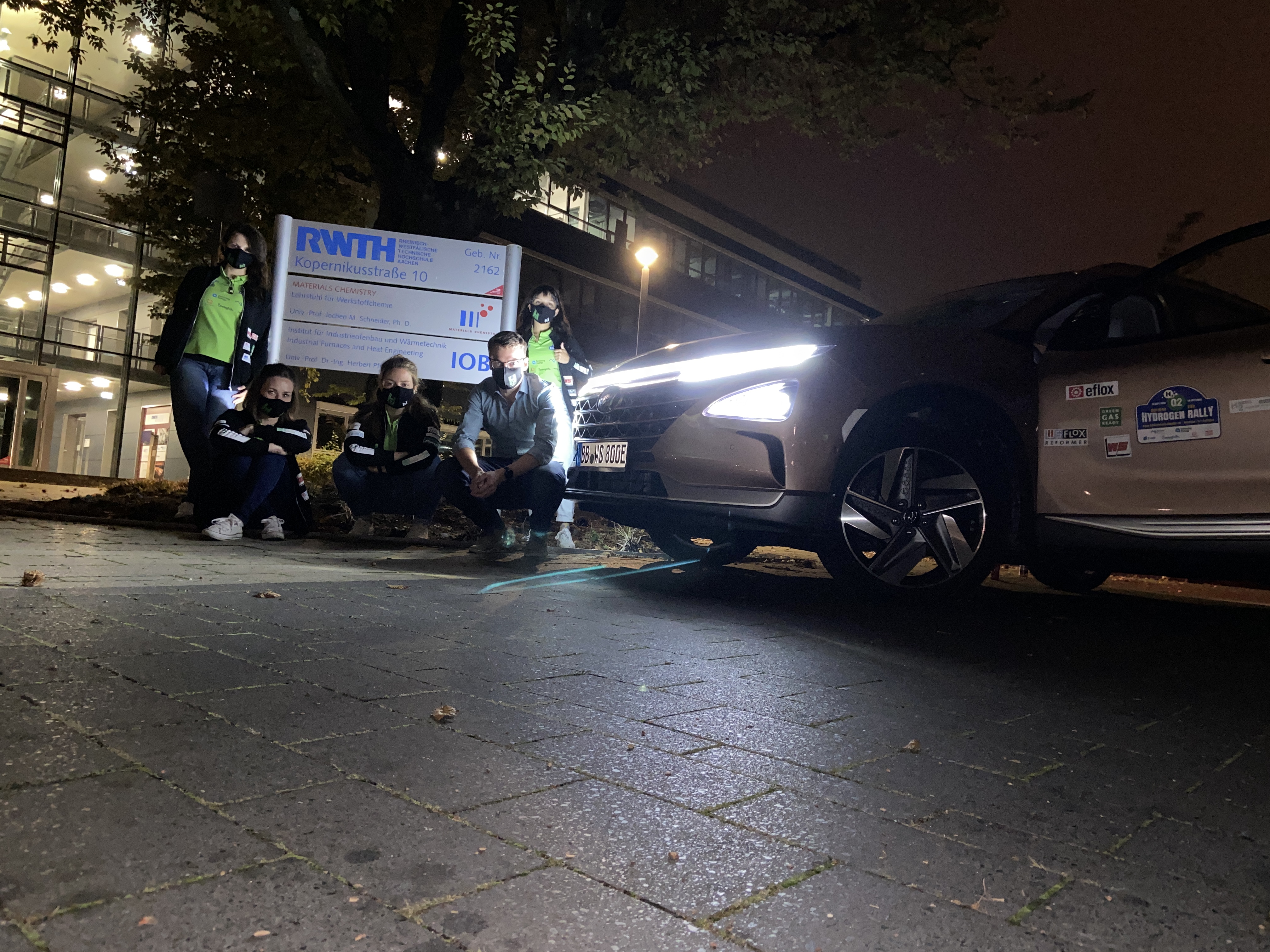
Special Times…
Special times require special efforts… at Burg Hohenzollern.
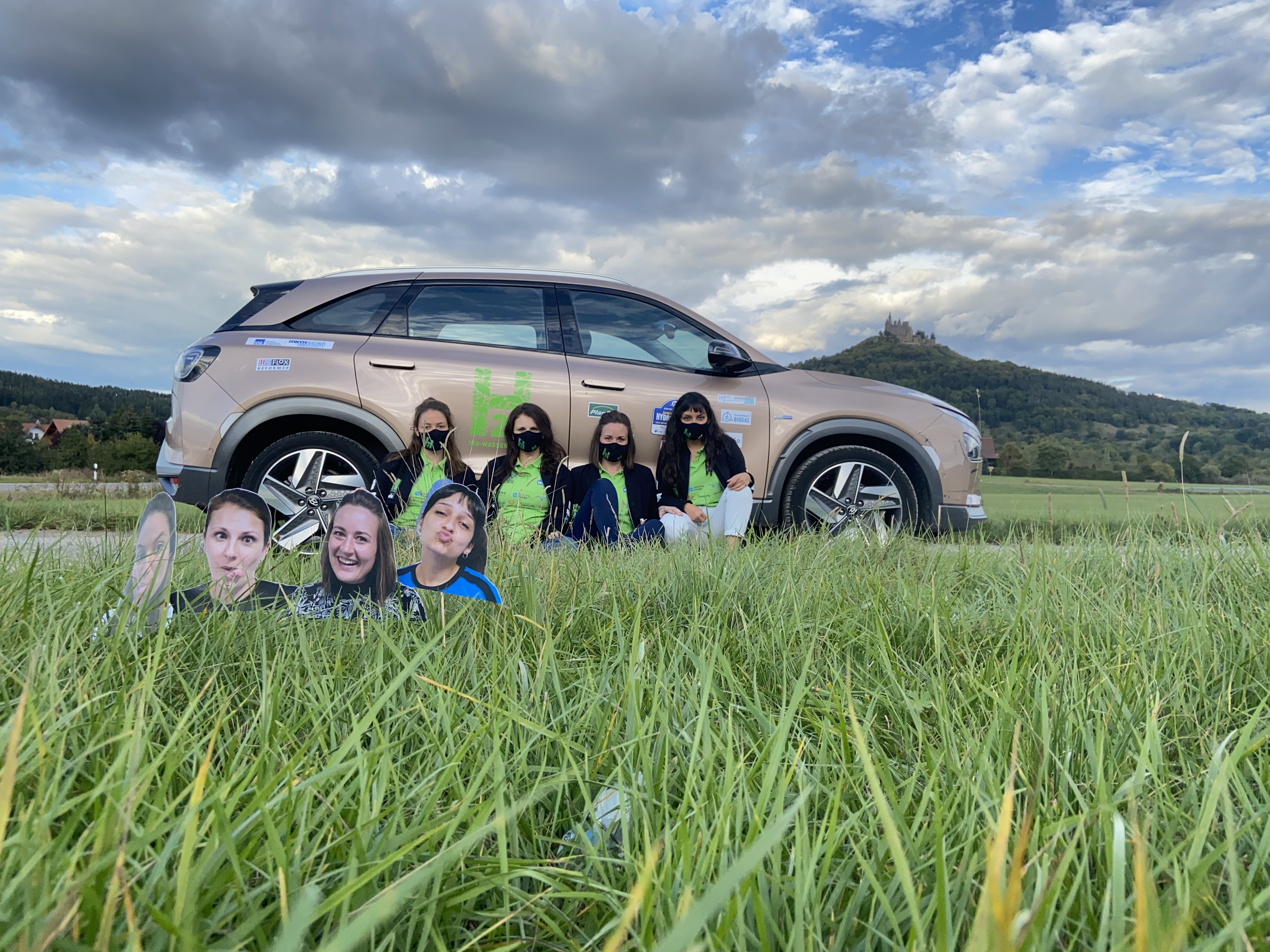
Go Go Go!
GO! Just in time at 4 pm we started at the Bodenseeforum and crossed the Swiss border to collect some points. Now we have time to tell something about us.
We are Linda, Julia, Jana and Anuscha. We are Team BtX – Bio to X.
Julia and Jana are engineers working at the company WS Wärmeprozesstechnik GmbH. WS cooperates with the Department for Industrial Furnaces and Heat Engineering (IOB) at the RWTH Aachen University. That same Department is where Linda envisions low emission combustion solutions as a PhD Student. Lastly, Anuscha works for Linda at the Department and interns at WS!
We believe in hydrogen power and we go a step further by starting at the beginning of the problem. We want to create a closed cycle for a green energy supply system so that we can truly move sustainably.
Are you on board?

Arrived at the Bodenseeforum Konstanz
We have arrived in Konstanz! We made a short trip to the Bodensee of course. The weather is fantastic! The official briefing at the Bodenseeforum begins soon. Until then we’ll see who the other teams are and what cars they drive…



Off to Konstanz
Team BtX started in Renningen! The WS Group wishes us a good trip. We made a short stop at the H2 gas station in Sindelfingen and are on our way to Konstanz.


Finally Together
Team BtX has finally come together. At a joint meeting in Karlsruhe we got ourselves and the car ready for takeoff. Furthermore, everybody could drive the Nexo once and get used to the car. After a hopefully restful night, we will start tomorrow at 10 am with great expectations towards Konstanz, where the rally starts.


